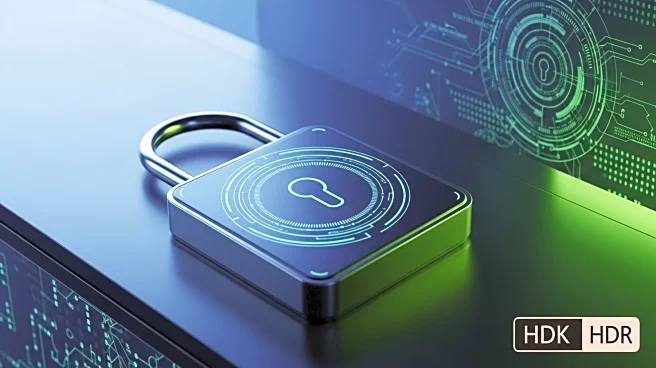What's Happening?
Private Internet Access (PIA) VPN has announced a significant price reduction, offering an 82% discount on its services. This move positions PIA as one of the most affordable VPN options available, with a monthly cost reduced from $11.99 to $2.19. The offer includes a 2-year commitment with two free months, totaling $56.94 for the initial 26-month period. PIA is known for its privacy, security, and performance, boasting features such as unlimited simultaneous connections, unrestricted bandwidth, and over 30,000 servers in 90+ countries. The VPN also offers advanced security features like multi-hop encryption and ad-blocking, along with a no-logs policy and third-party audits.
Why It's Important?
The drastic price reduction by PIA VPN is significant in the competitive VPN market, where privacy and security are paramount for users. By offering high-quality services at a lower cost, PIA is likely to attract a broader user base, including those who may have been deterred by higher prices. This move could pressure other VPN providers to reconsider their pricing strategies, potentially leading to more affordable options for consumers. Additionally, the emphasis on privacy and security features aligns with growing concerns over data protection and online privacy, making PIA a compelling choice for users seeking reliable VPN services.
What's Next?
With the new pricing strategy, PIA VPN may see an increase in subscriptions, prompting further expansion of its server network and enhancement of its service offerings. The competitive pricing could also lead to increased scrutiny from competitors, potentially sparking a price war in the VPN industry. Users can expect continued improvements in VPN technology and features as providers strive to differentiate themselves in a crowded market. PIA's commitment to privacy and security will likely remain a focal point, ensuring that users have access to robust protection while navigating the internet.
Beyond the Headlines
The decision by PIA VPN to slash prices may have broader implications for the tech industry, particularly in the realm of cybersecurity. As VPNs become more accessible, there could be a shift in how individuals and businesses approach online security, potentially leading to increased adoption of VPNs as standard practice. This trend may also influence regulatory discussions around data privacy and protection, as more users demand secure and private internet experiences. The move by PIA could serve as a catalyst for innovation in VPN technology, driving advancements in encryption and security protocols.









